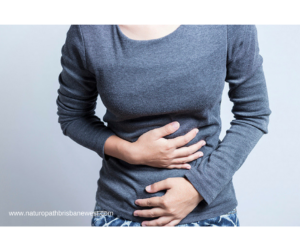Blastocystitis hominis & Dientamoeba fragilis: Pesky Parasites
Chances are you may have heard of the parasites called Blastocystis hominis and Dientamoeba fragilis. Recently there has been a prevalence of clients presenting with these conditions in my clinic. Blastocystis is a little parasite with a very hard shell, allowing it to survive outside the intestinal tract or other nurturing environments even though it is spread via water. Dientamoeba, on the other hand, is a nonflagellate trichomonad which is commonly found in the human gastrointestinal tract. It is believed to be spread through poor sanitary conditions or accidental transmissions such as swallowing food or water infected with the parasite. Both often respond to treatment in the same way.
Symptoms can include:
Symptoms can range from very mild to quite severe and include:
Nausea,
Constipation or loose stools
Abdominal pain that comes and goes.
Excessive gas
Slimy stools, and
Fatigue and brain fog.
Diagnosis:
Infection needs to be diagnosed through a stool sample, although I usually recommend more than one to be more accurate, as stool tests often fail to diagnose parasites. I also recommend that clients are rescreened at least 6 weeks after treatment as reoccurrence commonly occurs.
Treatment:
There is a general line of thought that parasites are easily eradicated through antibiotic therapy (in some cases the medical treatment is antibiotic Triple Therapy) or through herbal antiparasitic herbs such as oregano oil and garlic which people commonly take. However I have found that these treatments can be harsh for some people and do not always work for everyone. Staying true to natural therapy, I believe it is essential to look at the individual’s immune and gut health before deciding on a course of treatment.
In many cases there will be other factors that will affect a client’s recovery or they may have more resistant parasites and considerations I look at for treatment are:
How is their gut health?
They may have any existing digestive conditions such as IBS, Coeliac Disease, SIBO or other inflammatory bowel diseases.
Do they eat a whole food or junk food diet.
Are they or were they taking medications.
How strong is their immune system and overall vitality.
In some cases food intolerances and food allergies may also need attention.
With many clients I find it is essential to begin treatment by strengthening a person’s gut integrity and microbiota to support their immune health before going on to use natural anti-parasitics. They just may not have a strong enough gut ecology to initially support these treatments. These parasites are often resistant to herbs used to fight them and treatments may also need to be pulsed on and off to be more efficacious. Some herbs work better than others and there is good research on other beautiful herbs such as pomegranate in treatment of Blastocystis, not to mention specific strains of probiotics that can be beneficial.
Overall what I do recommend:
See a naturopath
Watch Your Diet
- If you are experiencing symptoms of Blastocystis or Dientomeba infection – an important step is to ensure your diet is not creating a parasite friendly environment. This will support any treatment protocol you may be undertaking. Parasites colonise the large intestine and when ‘challenged’ can result in symptoms of discomfort. People need to be informed of this fact so making changes gently is often necessary.
- Alkalinise your diet if it is high in acid forming foods such as red meat, dairy, refined sugar and grains.
- Increase your intake of vegetables, especially the green leafy variety with particular mention of broccoli and spinach. They support a healthy microbiota
- Reduce carbohydrates in general as the parasites feed off these. Increase your intake of easily digestible protein.
- Reduce alcohol and caffeinated drinks – teas, coffee and carbonated drinks.
- However – include green tea as these parasites don’t like it!
- Include wonderful parasite fighting herbs and spices such as – cinnamon, clove, fresh ginger, turmeric, garlic, oregano and thyme.
- Include fermented foods in your diet to support your body’s production of probiotics.
Prevent Infection/Reinfection?
- Ensure good hygiene is applied – always washing hands after going to the bathroom and before eating.
- This also applies to those who do not have these parasites but someone else in the household does!
- Carefully washing and peeling raw fruits and vegetables before eating.
- Avoid contaminated water or foods that may have not been stored well.
In summary, what is essential is to ensure that our gut health and subsequently our immune system are as healthy and strong, as well as keeping our toxin levels down. The world is becoming increasing populated and polluted and our exposure to parasites (and other microbes) is continually increasing. So if you are diagnosed with these parasites I highly recommend seeing a natural health practitioner. In addition we need to go back to health basics: eat well, keep our gut microbiota strong and healthy, support detoxification and rest and relax.
Marianne Harold
October 28, 2017

